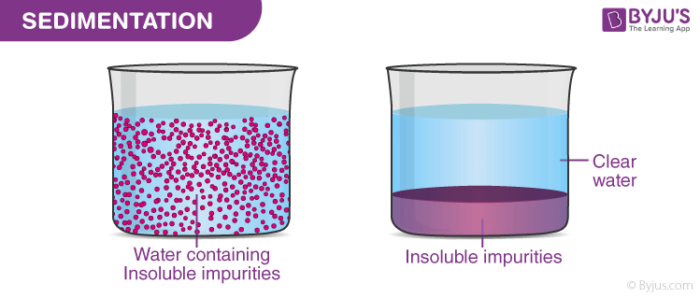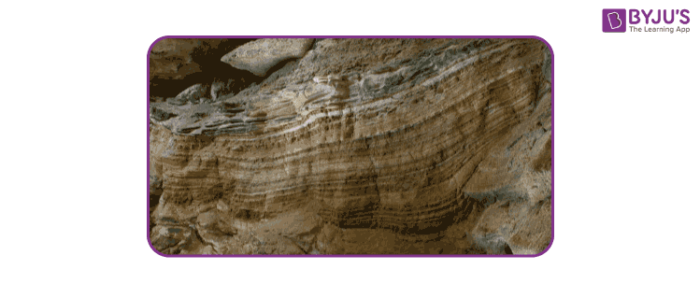On a daily basis we come across various incidents in which we have to separate one substance from the another to make it useful. Various methods are available by which we can separate substances which are mixed together. Sedimentation is one of the simplest separation methods. It is an essential concept that needs to be understood. Its importance is unquestioned and plays a crucial role with archaeology. It is a natural process and can be explained as the building up of layers of small particles like sand or mud. Weight and sedimentation is much related.

The process of sedimentation can be observed by a small experiment. Take a jar and fill it with garden variety mud, pour some water, shake well and keep it untouched for few minutes. In a while it can be noticed that the gravel and rocks have settled below, stand above and so on. Basically the garden variety mud has formed layers of soil based on varied.
Similarly, looking at a cliff, several layers in the surface of the cliff can be observed. These layers are caused by sedimentation. Over a long period of time, the grains of sand and mud build up, forming the layers. Fossils happen to be found in these layers. Logically, the quicker the bones are buried; the chances of survival are more than it is protected from scavenging animals and less damaged by weather. The sea, rivers and lakes are the best depositors of sand and mud. Dinosaur fossils were found to be nearer to the sea, lakes or rivers. A land-slide, where mud and rock fall down a mountain of a hill can also lead to a type of sedimentation.

Sedimentation can be used to separate particles based on their size by applying a centrifugal force to the required solution. In the process of Centrifugation, a centrifugal force is applied to a heterogeneous mixture which will separate the mixture according to its density. The denser components shift away from the centrifugal axis whereas the less dense ones stay closer to the centrifugal axis. Thus separating the constituents of the mixture.
Sedimentation also helps to determine the medical conditions of a person. Sedimentation rate of RBC’s is an example. The sedimentation rate is performed by measuring how long it takes red blood cells (RBCs) to settle in a test tube. As time passes, RBC’s start to separate from the other plasma contents, and they settle down at the bottom and serum will be formed above. The sedimentation rate or the ESR (erythrocyte sedimentation rate)is measured simply by recording how far the top of the Red Blood Cell layer has fallen (in millimetres) from the top of the serum layer in one hour.
Water treatment plants use the method of sedimentation to filter out unwanted particles from unclean water. Filtering through several layers of sand and soil, allowing certain sizes of particles to pass through.
For detailed and elaborated information about various separation methods like winnowing, threshing, decantation, crystallization filtration etc. and its uses download BYJU’S – The Learning app to google play store.




Comments